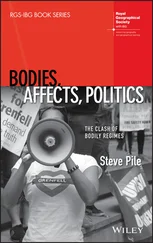The lotus-thorn tree had grown enough that its leaves now pressed against the window. The heat seemed to be getting worse. A vision of her future children crowding into the room to surround their grandfather’s bed forced itself on her but the image seemed to erase his pale face. She was confused into complete silence but his hand rescued her. His fingers were trying to grasp a barely visible tattered notebook tightly enough to tug it out from under his pillow. Asma studied the title: From the Sessions of the Brilliant Scholar Judge Yusuf bin Abd al-Rahman . When she cracked open the bound notebook, its pages fell open where a leaf had been stuck as a bookmark. Azzan nodded at her. She began to read.
Know that the stars of the firmament empty their gems into the moon, and the moon spills them into the water. The force of the water splits them into all the gems that exist in creation. The moon is the treasure house for what is on high and what lies below. The moon moves between high and low, between the sublime and the filth of creation. Of all the celestial bodies, the moon is closest to the matters of this lower world. And so it is a guide to all things. Contemplate the state of the moon until you know it well. Its soundness is the strength of all things, its ruin the corruption of all things. If the moon moves closer to another celestial body then it gives more force to whatever that body can tell us or give us. When the moon moves away from another body in the firmament it weakens that sphere’s power. When the moon’s light intensifies in its approach to Mercury, that is the best state of all. But if the moonlight is weak as it confronts Saturn, or moves closer to it, this is the worst of all worlds.
A woman as young and as strong as Fatima Umm Abdallah could not possibly die in a matter of two or three days unless she’d contracted a fever as she was giving birth. That’s what people in al-Awafi said. Ankabuta made certain that everyone knew she had carried the special childbirth food regularly to the jinn-woman Baqiia so that the jinni would not harm Fatima, or baby Abdallah. And Ankabuta swore that she hadn’t taken even one bite from the huge tray of food she carried on her head to Baqiia. She always left the food, exactly as she had brought it, at the jinn-woman’s favourite rock. And then she left immediately without even once looking behind her. Not long before this, Zayd claimed, the young woman whose death was so puzzling had uprooted the basil bush herself rather than summoning him to do it. And that she told him the odour of basil attracts vipers and she was afraid for Abdallah. Even if he was a newborn, it wouldn’t be that long before he could sit up, and then soon after that he would be crawling.
Merchant Sulayman’s sister insisted that she had been very careful. She had supervised the food preparation herself. But somehow, within days, the poor woman changed colour. She turned blue. Zayd insisted she was the sort of woman who simply couldn’t escape being the target of someone’s sorcery. He was very sure of what he was saying, he told them, especially since he was the one who worked all night long at the canals outside town, and so he knew all the secrets of the night-folk. She was a good woman who minded her own business, Maneen said sadly, and she didn’t forget to send him sweets after the boy was born.
Shaykh Said’s mother said that every person in this world will be served in the afterlife what she served others in this life. God forbears. He does not neglect the good ones among us, she said.
People were startled by her words. What was she hinting at?
Zarifa kept quiet.
Even when he was very little, Marwan remembers, he had heard his mother tell the story of the dream she’d had when she was pregnant with him, and Judge Yusuf’s interpretation. You will have a son, he said, who will be righteous and good. Pure, and an important man. She wanted to name him Muhammad or Ahmad, but the baby already had brothers with these names. So she named him Marwan, seeking a good omen from the name of her deceased brother who had raised her. She brought the boy up on the soundness of her dream, which she believed in fiercely, and that’s why she gave him a second moniker, ‘the Pure’, which everyone else began to use, too. She worked hard to implant a love of knowledge and devotion to the Faith in him from his early days, and she pushed him toward the Shaykh at the mosque, wanting Marwan to shadow him. That’s the way he grew up, his heart attached to the mosque.
Marwan the Pure committed to heart the whole of the Noble Hadith. Surely this alone was proof that he was amongst the elect, those whom God would shade and protect on the Day when there is no shade to be had but His. Marwan grew up obeying God to the letter. Because his heart was so attached to the mosque he scorned the games of other boys and their interest in trivial things. He found nothing to admire about the time people spent in wasteful pleasures. He had no use for chitchat or for anything else that stole moments from the quiet contemplation of God’s creation. He buried himself in this pure little world that encased him. When his parents moved to Wadi Aday, leaving al-Awafi, they chose a house near the mosque so that their children would be raised on the threshold of the mosque there, and particularly so that, in the new environment, Marwan the Pure would not find himself cut off from his life of devotions.
He was number four, following Hamad, Muhammad and Qasim. After him came Hilal and Asim. But he himself recognised early that he was made of a different clay, and he was acutely aware of the pride his parents took in him. He knew how they talked about him. He stayed apart, refusing to play with his brothers or even exchange much conversation with them. These silly matters were not worthy of him, whose specialness had been foretold in the dream, who was vowed and destined to works of greatness.
Marwan the Pure was thirteen when he snuck in the night to his parents’ room and stole all the money he found in his father’s wallet. The next day he beat himself sore with his father’s cane and vowed to fast for two weeks. Three months later he snuck into his big brothers’ room and stole the money in Qasim’s wallet.
By the time Marwan had completed his sixteenth year, he had fasted a total of eight months and fourteen days as penance for his thefts. The neighbours swore that light poured from his face and that his eyes, fasting from the fleeting pleasures of this world, gave off the everlasting grace of the hereafter. The girls were crazy in love with his slow, leisured, gentle gait, the pace of a person who has nothing to fear. They adored his grave eyes that never met the gaze of any girl. No one saw the traces of the self-inflicted blows to his back, punishment for all he had stolen, which by now consisted not only of money but also included watches and articles of clothing, even his mother’s earrings and shoes. More often, now, he dressed only in white, and he rarely spoke. And when his face went pale from so much fasting, no one remained in doubt that he was some kind of saint, one of the pious, righteous Friends of God.
Yes, by the time Marwan reached the end of his sixteenth year, he had fasted a total of eight months and fourteen days but he knew very well that he would not stop stealing, just as he was perfectly aware that he had no need of any of the things he stole. He hadn’t come to terms with the shock his own behaviour gave to his pure nature. What could he think? He didn’t believe this creature was really him, the boy who spent so much time in devotions at the mosque, who crept into rooms at night and stole worthless objects. It ripped him apart; he could almost hear the sounds of his body splitting and shredding. Everything got confused, his mother’s dream and his own grand sense of himself, trivial games and pleasures. And he stole, he whom God Himself was to screen with the formidable shade of His heavenly throne. He stole. The Pure One who was ever watchful to keep himself clean, who barely raised his eyes from the ground. He stole. The one who had been vowed to God, the one of whom glad tidings had come. He stole. His pure hands reached to steal that which he did not even need and would certainly never use.
Читать дальше












